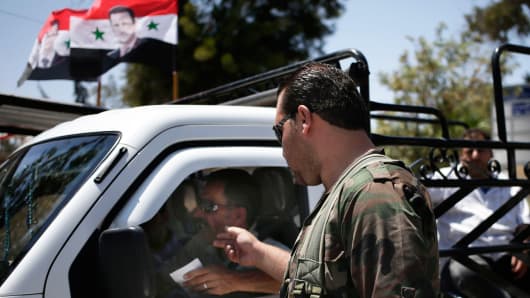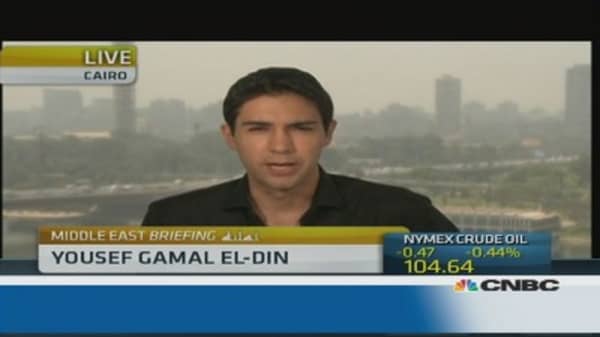Musab abu Qutada, a spokesman for the local military council of the Free Syria Army, who is in the area near where he attacks took place, said the death toll had reached more than 1,200. NBC News could not verify the claim.
Several towns and villages to the east and north of the capital were attacked by surface-to-surface missiles beginning around 2 a.m. Wednesday (7 p.m. Tuesday ET), the rebel spokesman said.
"The deceased and the wounded are in field hospitals," he said in a Skype interview. "We have about 1,228 victims. We are in need of medicine. We are in need of medical staff."
The "chemical bombardment" was so strong that doctors at the scene had also died from the effects of the gas, he said.
"There were some symptoms like numbing of the body, constricted pupils of the eye, foam coming out of the mouth, paleness of faces, shortness of breath," he said.
(Read More: Turkey plays big in Kurdistan's energy game)
Conflicting death tolls from different sources could not immediately be reconciled by NBC News. Witness accounts are impossible to verify because Syria does not allow journalists to operate freely inside its borders.
The opposition Local Coordination Committees in Syria put the death toll at more than 755, saying several areas had been hit by "shelling with poisonous gases."
It said the areas hit included Ein Tarma and Zamalka in eastern Ghouta and Mouadamieh in western Ghouta.
More from NBC:
Exodus: Thousands of Syrian refugees escape into Iraq
Analysis: Who's backing who as Syria's civil war threatens to spread
White House: Syria's Assad is 'one of the worst tyrants' of modern era
Susan Ahmad, who lives just over one mile from the areas, described a smell in the air and reported having burning, red eyes and dizziness after the attacks.
"There is a very strange smell and it's a very ugly one," she told NBC News' U.K. partner ITV News . "It's nasty. You feel like there is something wrong in the air."
She added: "The death toll is likely to be higher and higher because don't have enough [medicine] to save lives."
Bayan Baker, a nurse at a field hospital in Douma, told Reuters that death toll from the attack, collated from medical centers in the region, was 213.
"Many of the casualties are women and children. They arrived with their pupils dilated, cold limbs and foam in their mouths. The doctors say these are typical symptoms of nerve gas victims," she said.
The Syrian Revolution General Commission told regional news channel Al Arabiya that the death toll was at least 640, with hundreds of others reported wounded.





